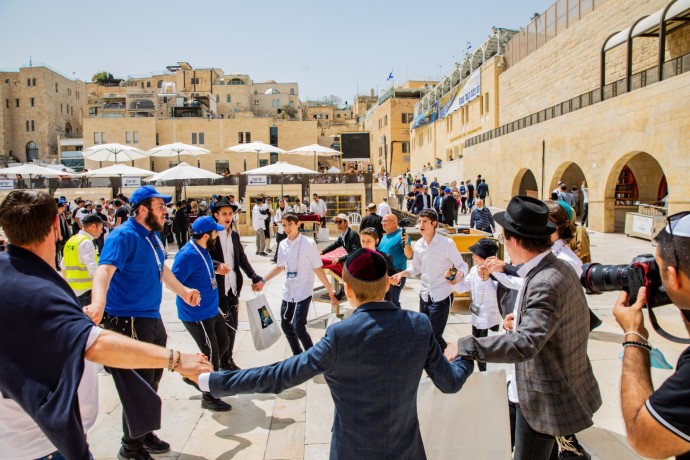During Sukkot, we gather and eat in our outdoor huts just as our ancestors did while wandering the desert. Long before the holiday as we know it today, the ancient Israelites held firm to the belief that they would reach the Promised Land, the Land of Milk and Honey.
Thousands of years later, we have achieved sovereignty in the Land of Israel. As we enter our sukkot during the holiday, we must ask ourselves, is Israel really a home for all Jews?
On Sukkot, we remember that God’s presence is all around us by shaking four distinct plants in all directions. These four species – the lulav, hadas, arava and etrog – come together in their differences.
Each of these plants adds to the overall structure, and without a single one of them, the commandment of shaking the species cannot be fulfilled. Similarly, the Jewish people are made up of diverse backgrounds and practices. Jews around the world belong to different streams, but they are all Jewish.
We are all necessary components of Am Yisrael, the people of Israel. As the saying goes, “A Jew is a Jew is a Jew.” So why does the State of Israel favor one kind of Jew over the rest? What do we lose when we cannot come together?

As members of the Jewish nation, we are each tasked with countless issues from outside and within our community. One of the central internal battles of our time is the one for religious freedom at the Western Wall in Jerusalem.
Ultra-Orthodox rule Jewish holy sites
The current management of our holiest sites enforces ultra-Orthodox rules while turning a blind eye to the abuse and violence waged against more liberal-minded Jews and egalitarian Jewish practice.
In 2016, a historic deal was reached. Like the four species, Jews from different streams and opposing political parties achieved the impossible, and the Israeli government passed the “Kotel Agreement.”
This would keep the ultra-Orthodox regulations in place in the main Western Wall plaza, while renovating and restructuring the management of the egalitarian section – Ezrat Yisrael. Since then, the plan has been shelved and remains on the back burner, with politicians too afraid to touch it.
The government’s failure to implement the deal is nothing short of a disgrace and an affront to democracy. The Western Wall is the symbol of the Jewish people. It is the place where Jews of all backgrounds and walks of life come to connect to their heritage.
And yet, Jews who do not adhere to strict ultra-Orthodoxy are treated as second-class citizens at their own holy site. Ezrat Yisrael is unacceptable as it stands today.
With limited wheelchair and stroller access, no ability to touch the Western Wall itself, no government budget for renovations and almost no security, it cannot function the way that it should. How is it possible in 2022 that this sacred place is not equally accessible to all Jews?
What do Diaspora Jews think when the leaders of their Jewish streams are not allowed into the grounds of the Western Wall with a Torah scroll in hand?
What do they think when they see young teens harassed and called Nazis at their bar and bat mitzvahs in the egalitarian section of the Kotel? No one who is treated with such disrespect could possibly feel at home there. So what are we doing to make Israel truly a home for all Jews?
Until the Western Wall properly accommodates and respects all streams of Judaism, Israel is, sadly, not a home for all Jews. When Jews who practice egalitarian traditions feel more comfortable praying in New York than in Jerusalem, we must all come together and fix this issue.
As we celebrate the harvest festival of Sukkot, we ought to contemplate how Israel, the supposed home for all Jews, can live up to that ideal.
The writer is the director of the Women of the Wall.
